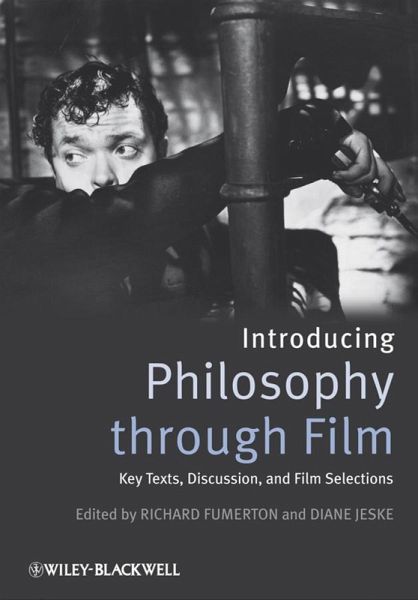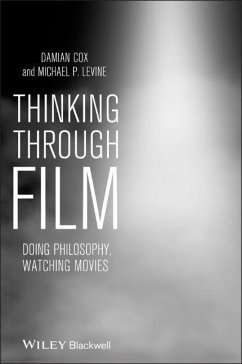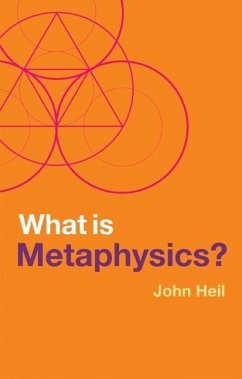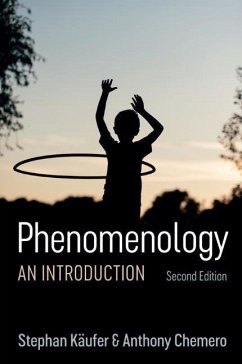
Introducing Philosophy Through Film
Key Texts, Discussion, and Film Selections
Herausgegeben von Fumerton, Richard; Jeske, Diane
Versandkostenfrei!
Versandfertig in über 4 Wochen
125,99 €
inkl. MwSt.

PAYBACK Punkte
63 °P sammeln!
From Monty Python and The Matrix to Casablanca and A Clockwork Orange, popular films offer surprisingly perceptive insights into complex philosophical concepts. Introducing Philosophy Through Film combines this novel pedagogical approach with all the virtues of a serious introductory anthology of classical and contemporary philosophical readings. The result is an engaging and effective way to fire the imagination of those new to philosophy. Drawing on a wide range of popular and easily accessible films, Introducing Philosophy Through Film covers many of the central areas of philosophical concern.
Philosophy Through Film offers a uniquely engaging andeffective approach to introductory philosophy by combining ananthology of classical and contemporary philosophical readings witha discussion of philosophical concepts illustrated in popularfilms.
Pairs 50 classical and contemporary readings with popular films- from Monty Python and The Matrix to Casablanca and A Clockwork Orange
Addresses key areas in philosophy, including topics in ethics,philosophy of religion, philosophy of mind, free will anddeterminism, the problem of perception, and philosophy of time
Each unit begins with an extensive introduction by the editorsand ends with study questions linking readings to films
Features chapter by chapter discussion of clips from films thatvividly illustrate the critical philosophical arguments andpositions raised in the readings
Pairs 50 classical and contemporary readings with popular films- from Monty Python and The Matrix to Casablanca and A Clockwork Orange
Addresses key areas in philosophy, including topics in ethics,philosophy of religion, philosophy of mind, free will anddeterminism, the problem of perception, and philosophy of time
Each unit begins with an extensive introduction by the editorsand ends with study questions linking readings to films
Features chapter by chapter discussion of clips from films thatvividly illustrate the critical philosophical arguments andpositions raised in the readings












